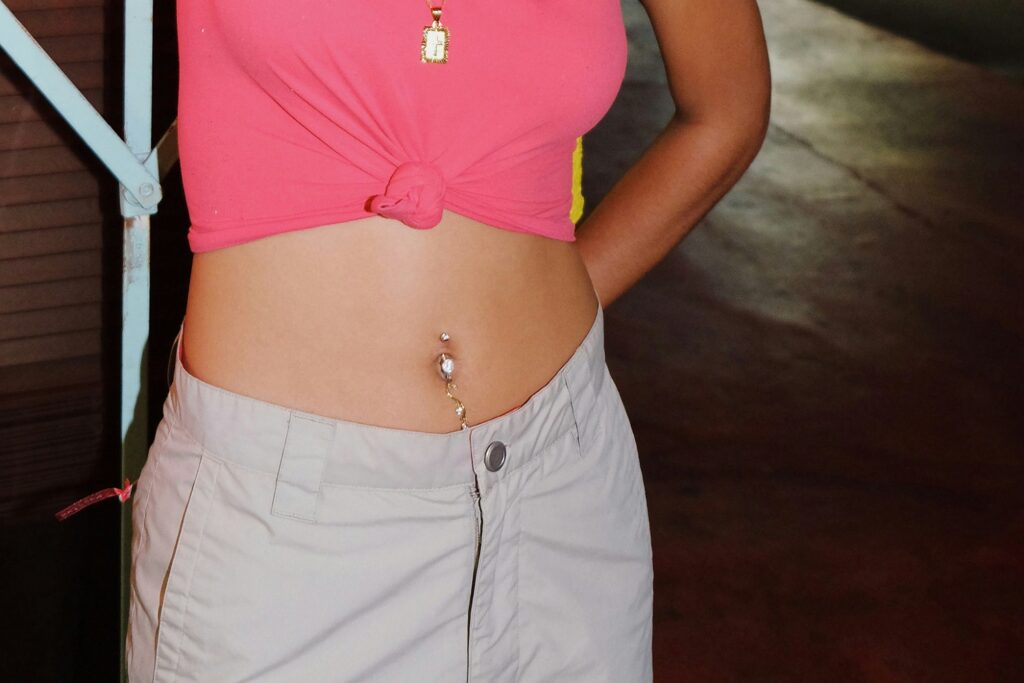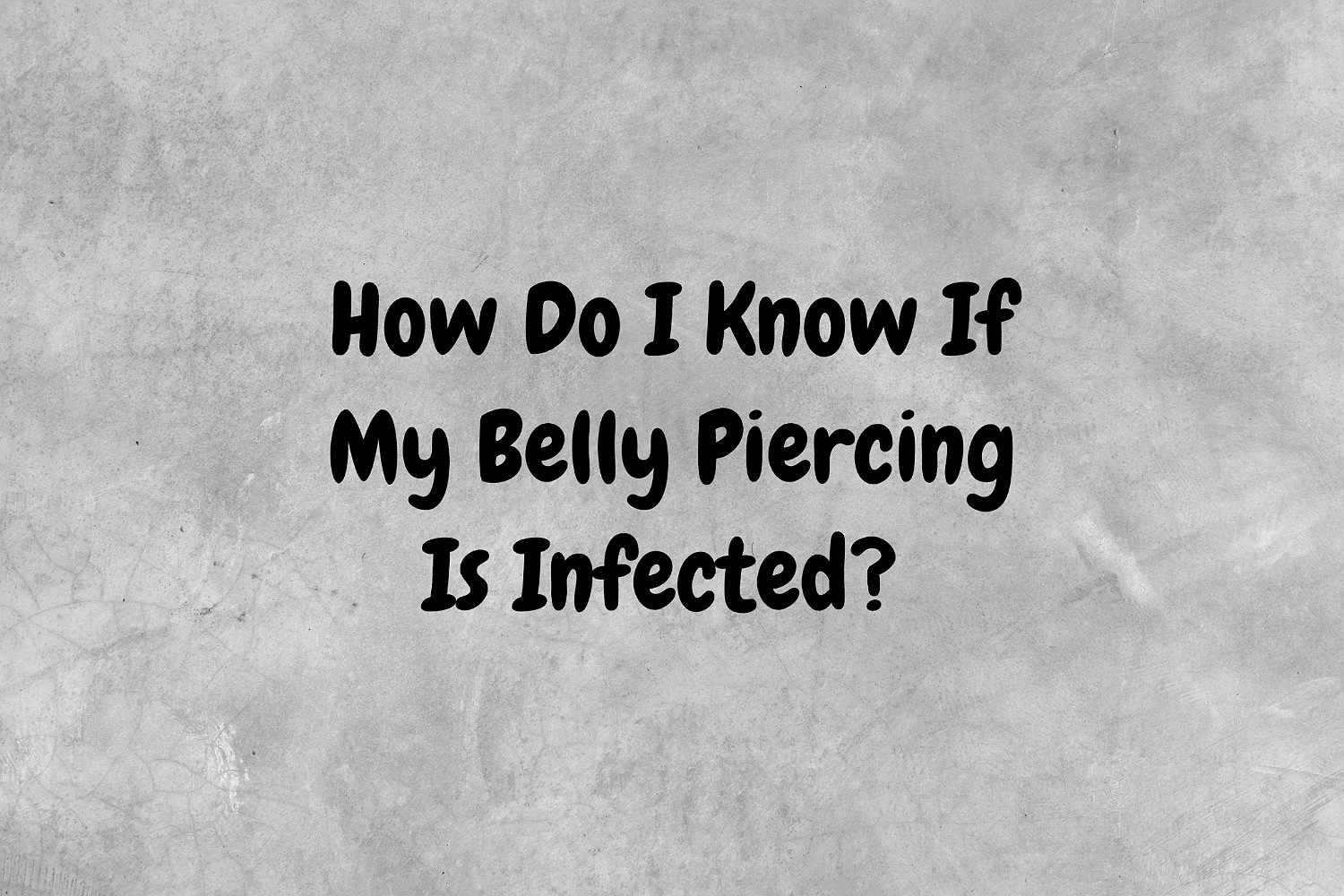How Do I Know If My Belly Piercing Is Infected?
Belly button piercings are a popular form of body art, but like any piercing, they require proper care to prevent infection. Knowing the signs of infection can help you address the issue promptly and ensure a smooth healing journey. So you ask, “How do I know if my belly piercing is infected?“.
Understanding Infection: When Your Body Fights Back
An infection occurs when bacteria enter the piercing site and your body’s immune system kicks in to fight it. While some mild discomfort and redness are normal during healing (typically 4-6 months), specific indicators can signal a potential infection.
Not All Discomfort Of The Belly Piercing Means Infection: First, The Healing Phase
When making a decision to get a belly button piercing, realize that during the initial healing phase, some redness, swelling, and tenderness around the piercing are normal. You might also experience a clear or yellowish discharge, especially during cleaning. These symptoms should gradually improve with proper cleaning.
When to Be Concerned About An Infected Belly Piercing
If you experience any of the following alongside redness, swelling, or tenderness, it could indicate an infection:
- Increased pain or throbbing sensation: This can be a sign of deeper infection beyond the surface layer.
- Thick, green, or pus with a foul odor: A clear or yellowish discharge is normal during healing, but thick, green pus suggests infection.
- Prolonged bleeding: Minimal bleeding is possible right after the piercing, but prolonged bleeding can be a sign of improper placement or infection.
- Fever or chills: These indicate a more systemic infection that requires immediate medical attention.
- Increased redness that spreads: Normal redness should stay localized around the piercing.
- Warmth to the touch: The piercing site might feel warm if infected.
- Red streaks radiating from the piercing: These can be a sign of infection spreading.
Steps to Manage a Potentially Infected Belly Piercing
If you suspect an infection, here’s what to do:
- Clean the piercing diligently: Continue cleaning your piercing twice daily with a saline solution as instructed by your piercer.
- Avoid harsh chemicals: Don’t use alcohol, hydrogen peroxide, or antibacterial soaps, as they can disrupt healing and irritate the area further.
- Don’t remove the jewelry: Removing the jewelry can trap pus and worsen the infection. See a doctor or piercer for guidance.
- Seek professional help: Visit a doctor or a reputable piercer for proper diagnosis and treatment. They might prescribe antibiotics or suggest additional cleaning solutions to help the infected belly piercing heal.
Do you think you have an infected nose piercing also? Check this out!
Proactive Care for Happy Navels
The best way to deal with an infection is to prevent it in the first place. Here are some essential steps:
- Go to a reputable piercer: Ensure they use sterile equipment and follow safe piercing practices to help avoid an infected belly piercing.
- Maintain a clean piercing: Clean your piercing twice daily with a saline solution and avoid touching it excessively.
- Listen to your body: If you experience any unusual pain, redness, or swelling beyond the initial healing discomfort, address it promptly.
- Avoid irritants: While healing, avoid tight clothing, swimming in pools or hot tubs, and exposure to dust, dirt, and harsh chemicals.

Remember, early intervention is crucial. By understanding the signs of infection and taking proactive steps to care for your piercing, you can minimize the risk of complications and keep your belly button happy and healthy.
Would you like to read further about belly button piercings? If so, check out our in depth article about everything belly piercings: Belly Piercings. Also, see other questions that people ask about belly button piercings: Belly Button Piercing FAQ.
Need to find a piercer? Check out the Association of Professional Piercers.

